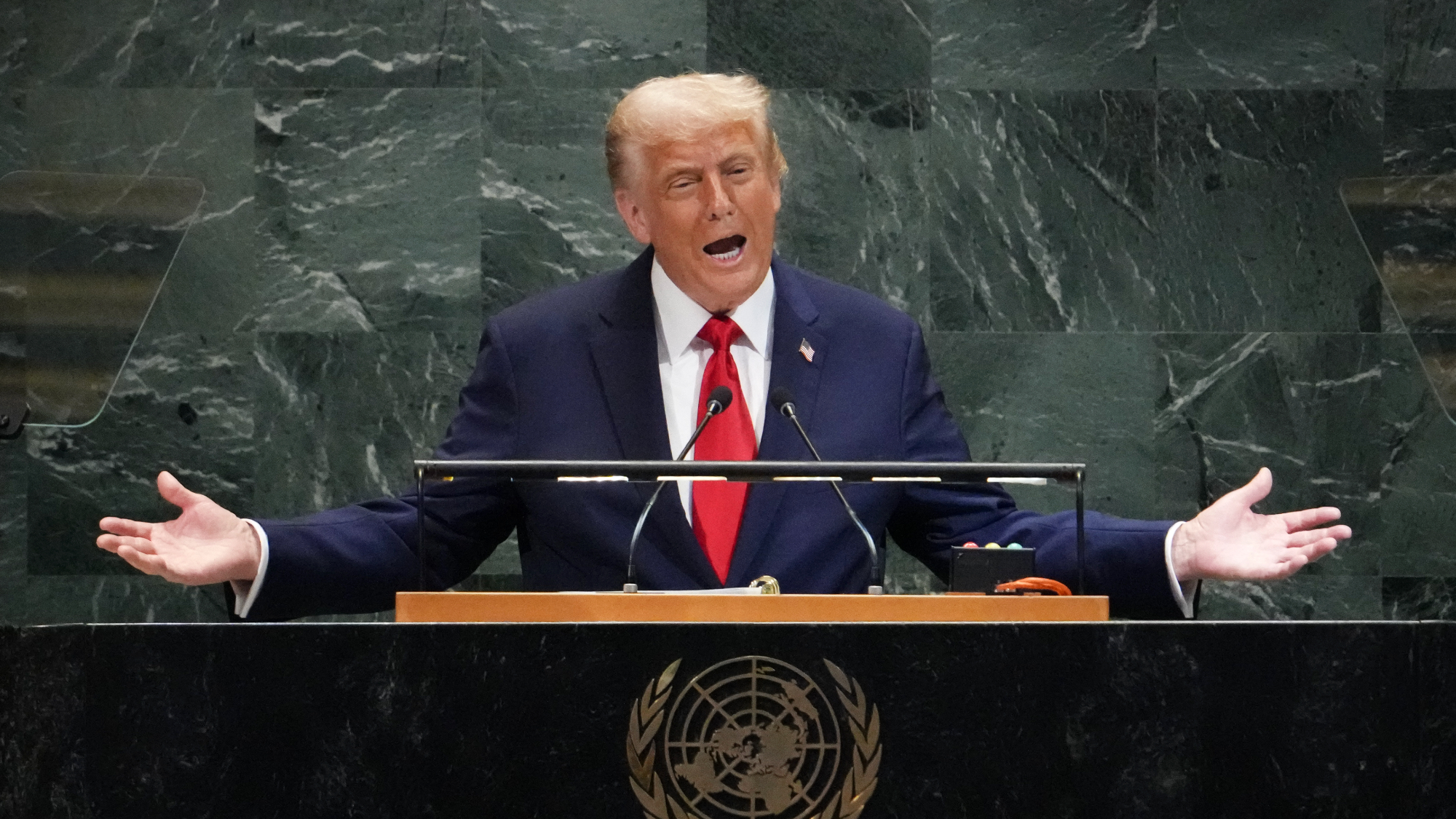How Pokémon Go became entangled in international espionage
'Zero evidence' augmented reality app was ever used for spying by Western intelligence, despite state bans and claims that persist to this day

A free daily email with the biggest news stories of the day – and the best features from TheWeek.com
You are now subscribed
Your newsletter sign-up was successful
An official from Belarus' defence ministry claimed that Pokémon Go was an instrument of Western intelligence and had been used to collect information about Belarusian military installations near Minsk, said Politico.
Speaking on a talk show, Alexander Ivanov said: "On the territory of the 50th air base, where the runway is, where there is a lot of military aviation equipment. That's where there were the most Pokémon. Is this not intelligence information?"
As current and former devotees will remember, Pokémon Go is an augmented reality app that allows players to use their smartphones to capture digital characters from the popular 1990s franchise in the physical world. What is less well known is that the 2016 global phenomenon sparked national security concerns from intelligence agencies around the world amid accusations it was in fact a secret espionage tool – suspicions that persist to this day.
The Week
Escape your echo chamber. Get the facts behind the news, plus analysis from multiple perspectives.

Sign up for The Week's Free Newsletters
From our morning news briefing to a weekly Good News Newsletter, get the best of The Week delivered directly to your inbox.
From our morning news briefing to a weekly Good News Newsletter, get the best of The Week delivered directly to your inbox.
An 'extraordinary scheme'
Ivanov's accusations echo those made at the time of the game's release by Russian ultranationalist ideologue Aleksandr Dugin, who claimed Niantic, the San-Francisco-based developer of the app, was linked to a CIA venture-capital firm. Influential figures in Russia depicted the app as an "extraordinary scheme by the US secret services to craftily enlist millions of people across the world to photograph and film hidden, out-of-the-way places"said Radio Free Europe.
The fact that "Pokémon can be found in every corner of the earth", as the app told users when they downloaded the game, was "precisely the problem" said the The New York Times at the time.
In Egypt, Al Jazeera reported that senior officials viewed the game as a "major threat to national security" that allegedly exposed the country's vital security sites to the world.
"Pokémon Go is the latest tool used by spy agencies in the intel war, a cunning despicable app that tries to infiltrate our communities in the most innocent way under the pretext of entertainment," Hamdi Bakheet, a member of Egypt's committee of defence and national security, told parliament in 2016.
A free daily email with the biggest news stories of the day – and the best features from TheWeek.com
Kuwait was among several countries that prohibited the app's use at government sites, while Iran went one step further and became the first county to ban it completely because of unspecified "security concerns", the BBC reported. China justified its own ban by describing it as a "threat to geographical information security".
A 'new era' of spying
The explosion of the Pokémon Go craze in 2016 "dovetailed with a new era of digital spying", said Foreign Policy. Suddenly, vast reams of data were being willingly harvested and shared by users on apps and social media, representing a huge opportunity for security services who "dove headlong into stealing, hacking, or buying data from the private sector that they could not somehow procure elsewhere".
There is "zero evidence that Pokémon Go was ever connected to a foreign intelligence agency, or used for spying by any intelligence agency, foreign or domestic". Much of the confusion during the game's peak in popularity in 2016 "may have just sprung from basic lack of understanding about the mechanics of the game" and its GPS function.
But although such suspicions may have been unfounded at the time, but today fears around the effects of surveillance capitalism – epitomised by platforms such as TikTok – are very much real, making Pokémon Go "a sort of Charizard in the coal mine".
-
 The Olympic timekeepers keeping the Games on track
The Olympic timekeepers keeping the Games on trackUnder the Radar Swiss watchmaking giant Omega has been at the finish line of every Olympic Games for nearly 100 years
-
 Will increasing tensions with Iran boil over into war?
Will increasing tensions with Iran boil over into war?Today’s Big Question President Donald Trump has recently been threatening the country
-
 Corruption: The spy sheikh and the president
Corruption: The spy sheikh and the presidentFeature Trump is at the center of another scandal
-
 Vietnam’s ‘balancing act’ with the US, China and Europe
Vietnam’s ‘balancing act’ with the US, China and EuropeIn the Spotlight Despite decades of ‘steadily improving relations’, Hanoi is still ‘deeply suspicious’ of the US as it tries to ‘diversify’ its options
-
 The ‘mad king’: has Trump finally lost it?
The ‘mad king’: has Trump finally lost it?Talking Point Rambling speeches, wind turbine obsession, and an ‘unhinged’ letter to Norway’s prime minister have caused concern whether the rest of his term is ‘sustainable’
-
 Does standing up to Trump help world leaders at home?
Does standing up to Trump help world leaders at home?Today’s Big Question Mark Carney’s approval ratings have ‘soared to new highs’ following his Davos speech but other world leaders may not benefit in the same way
-
 Le Pen back in the dock: the trial that’s shaking France
Le Pen back in the dock: the trial that’s shaking FranceIn the Spotlight Appealing her four-year conviction for embezzlement, the Rassemblement National leader faces an uncertain political future, whatever the result
-
 EU-Mercosur mega trade deal: 25 years in the making
EU-Mercosur mega trade deal: 25 years in the makingThe Explainer Despite opposition from France and Ireland among others, the ‘significant’ agreement with the South American bloc is set to finally go ahead
-
 Maduro’s capture: two hours that shook the world
Maduro’s capture: two hours that shook the worldTalking Point Evoking memories of the US assault on Panama in 1989, the manoeuvre is being described as the fastest regime change in history
-
 Unrest in Iran: how the latest protests spread like wildfire
Unrest in Iran: how the latest protests spread like wildfireIn the Spotlight Deep-rooted discontent at the country’s ‘entire regime’ and economic concerns have sparked widespread protest far beyond Tehran
-
 Trump pulls US from key climate pact, other bodies
Trump pulls US from key climate pact, other bodiesSpeed Read The White House removed dozens of organizations from US participation